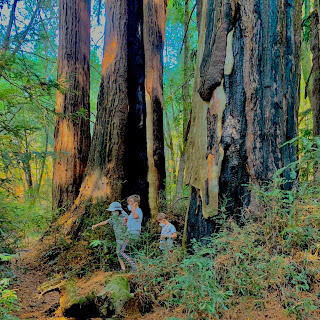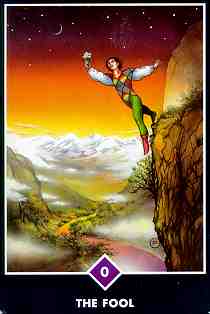I am taking a break (possibly permanently) from this New Moon Blog.*
At this time when there is so much breaking news about what is breaking down in the world, I am paying attention to what is broken or breaking in my life as well.
I love writing for you and am greatly appreciative of the time you have taken to read my words over the years. In the midst of all that competes for your attention, I am honored every time you chose to read my (often overflowing and occasionally overwhelming) offerings.
"It's not you; it's me" and "you deserve better".
These clichéd lines from so many break-ups are totally true in this case!
I want with all of my heart to serve you better than I have been able to do -- despite my best efforts. Our relationship has been "complicated" and that is entirely on me. Clear, concise, simple and easy are totally contrary to my way of being!
Rather than attempting to "fix"what is broken (in this blog and my life and what is happening around me in the larger world) I'm putting my energy into consciously and more energetically breaking old patterns and exploring what I find at those broken edges.
I always begin my writing for this blog and everything else, by scribbling on scratch paper before moving to the computer.
I make lots of copies of significant insights from my voracious consumption of library books and sometimes they later get added to my scrap paper folder. I have recently discovered this is another fun source of synchronicities. Old pages sometimes copied years in the past that I had decided I did not need anymore or were faulty copies resurface just when they are totally relevant.
So as I was scribbling about the concepts of broken and unbroken and Groundhogs and rats ** and feeling like my mission was "in pieces, in a pile on the floor, [and I had] no idea how to go forward ", I noticed that on the flip side of one of the pages was a reference to Akhilandeshvari --The Goddess of Never Not Broken.
Akhilanda derives her power from being broken: in flux, pulling herself apart, living in different, constant selves at the same time, from never becoming a whole that has limitations.
But this isn’t the kind of broken that indicates weakness and terror.
It’s the kind of broken that tears apart all the stuff that gets us stuck in toxic routines, repeating the same relationships and habits over and over, rather than diving into the scary process of trying something new and unfathomable. **
In pieces, in a pile on the floor, with no idea how to go forward, your expectations of the future are meaningless. Your stories about the past do not apply. You are in flux, you are changing, you are flowing in a new way, and this is an incredibly powerful opportunity to become new again: to choose how you want to put yourself back together. Confusion can be an incredible teacher—how could you ever learn if you already had it all figured out?
Well, maybe you can't relate. Perhaps all in your life is clear and solid, but confusion has certainly been my teacher for a while now!
Also, I love that this Goddess rides a crocodile. 🐊
Crocodiles "pluck their prey from the banks of the river, take it into the water, and spin it until it is disoriented. They whirl that prey like a dervish seeking God, they use the power of spin rather than brute force to feed themselves." They also represent the reptile brain from which our fear emanates.
I have been twirling like a dervish almost every single day for nearly 10 years in the wild beauty of Nature--dancing and spinning my (nearly constant and often severe) lifelong fears into nourishing gratitude and joy.
I have also been reading, writing, photographing, connecting and serving in as many ways as I can --as best I know how. AND working on practical survival by taking as many jobs as I can find!
I look forward to beginning something new on a future New Moon. Maybe it will be a blog or maybe something else.
In the meantime*, enjoy whatever lucky breaks life brings you --especially those broken places that seem anything but fortunate. As I have invited you to do so many times in these posts; look again at those potent times to see if you can discover a new story!
* I will continue to send out my Full Moon Blog to my Patreon subscribers-- with a new format starting with the next one. If you want to stay in touch with what I am up to and help support my creation process, I would be ever so grateful if you hop over to my Pareon page to check out the gifts I offer there.
** Happy Chinese New Year (Year of the Rat -1/25) and Happy Groundhog Day, Imbolc, Candlemas (2/2) and Setsubun /Japanese Bean Day (2/3)!
Groundhog Day is perhaps the most significant for me of all of the myriad holidays I celebrate. So I am feeling a combination of grief, disappointment, resentment, self recrimination (for once again replicating the movie of Groundhog Day with the endless repeating of same stuckness rather than creating something significant to roll out for the game of Sparks & Leaps as I had hoped and planned --see red highlted section of quote above) AND profound gratitude for the many blessings in this time of my life as well as a growing trust in myself and trust that all is unfolding in a timing that is not under my control.
One last fun synchronicity story. As I was coming to the despairing conclusion that despite my best efforts, I was not going to be able to pull off my annual Groundhog Day offering, I decided to consult my bookshelf oracle with the question of what I should do. I closed my eyes, reached into my ever-shifting stacks of books and pulled out a book that I opened to a random page. I got Awake in the World #331 The section entitled:
"Nurture perseverance and patience".
There were examples of several famous people who experienced multiple failures before achieving great success. I started to cry when I read "Einstein discovered the theory of relativity in a flash, but said it took him 10 years to explain it". It has been 10 years since my flash of insight (perhaps not quite as brilliant, but still pretty cool!) as well, so I am hopeful that I too will be able to eventually explain it!
In the meantime, farewell for now!




































